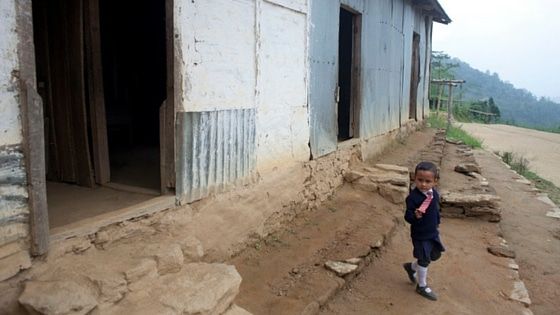
31/05/2016 by Michael Matergia 0 Comments
Private Schools in Rural Communities of the Darjeeling Hills (Part I): A Quiet Revolution
"Private School" has a much different connotation in rural India where the public sector is failing and low income families are forced to pull together large portions of their incomes in hopes of giving their children a chance at a better life.
This is part 1 of a 3 part blog post that was originally published on the American Indian Foundation Clinton Fellows Blog .
In the rural communities of the Darjeeling Hills, poverty has existed for decades. Recent economic development in India is only beginning to touch these communities. However, while development remains distant, the possibility has sparked a growing hunger and hope for a brighter future. On tea plantations where women labor as fourth-generation tea pluckers, mothers have begun to imagine a different future for their daughters. Sons of farmers hope for employment not on the family farms established by their great-grandparents but rather in the booming cities of Delhi and Bangalore.
In rural villages where literacy rates are low and most residents have not progressed beyond primary school, there is widespread recognition that education represents the only means for their children to access this brighter future.
Access to education is legally guaranteed and government primary schools are present in all but the remotest regions of Darjeeling. However, the public education sector is struggling to provide an adequate level of service to its students. Teacher absenteeism is rampant, textbooks and learning materials in scant supply, and basic infrastructure lacking.
The belief that the public education system is failing their children has compelled communities to create their own solutions. Poor families are increasingly willing to spend a significant portion of their monthly income on their children’s education. There is a budding hope that their children may be able to break the cycle of poverty that has consumed families for generations. These forces are combining to spark a quiet revolution in which community-run private schools are being created to meet the demands and desires of these families.

Comments
Leave a comment